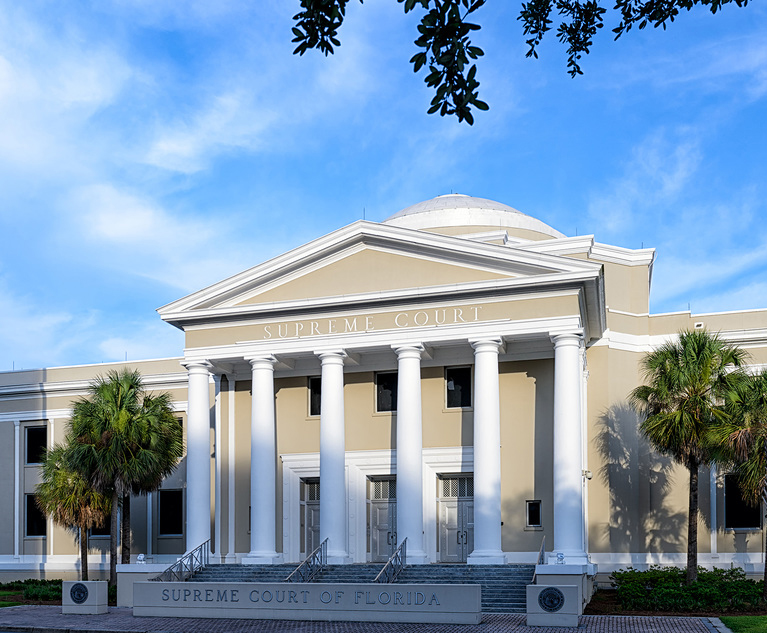The Florida Supreme Court ruled in favor of an Anheuser-Busch distributor and held that a litigant must file an insurance-liability lawsuit within two years of the death of a potential defendant.
Charles Wiggins and Terrie L. Didier, partners at Beggs & Lane in Pensacola, Florida, represented the respondents, who include the Lewis Bear Co., whose driver, Thomas Morton Jr., injured Samantha Tsuji and Crystal Williams in a car crash while operating a company-owned vehicle.
But petitioners failed to sue in time.
“The original lawsuit was filed within the four-year statute of limitations applicable to claims against living persons, but outside of the statute of repose for claims against deceased persons,” Wiggins said, noting that the four-year statute changed to two years under revisions to Fla. Stat. sec. 733.710(1) enacted in the most recent legislative session.
“But due to the death of the driver well prior to the commencement of the lawsuit,” Wiggins added, “it became apparent that then-existing Florida law would operate to give rise to the appropriate motion to have the case disposed of at summary judgment.”
Bryan S. Gowdy, a partner at Creed & Gowdy in Jacksonville, Florida, who represented the petitioners, did not respond to a request for comment.
Now, the Supreme Court affirmed the First District Court of Appeal judgment, and held that Section 733.710(1) ends the claim at issue here.
That statute barred “actions by setting a time limit within which an action must be filed as measured from a specified act, after which time the cause of action is extinguished.” It thereby disapproved the Fourth District Court of Appeal holding in Pezzi v. Brown.
“If the legislature truly favors the scheme outlined in Pezzi, it has the tools to make it the law,” Justice John Couriel ruled in the opinion. “Silence, in the face of a clear statute that cuts the other way, will not do.”
However, Justice Jorge Labarga dissented and argued that the terms “liable” and “pay-money liability” that Couriel focused on in his majority opinion, did not bar the lawsuit against Morton’s estate.
“In the same way that the majority takes issue with relying on legislative inaction, I take issue with relying so heavily on how the legislature could have written a statute,” Labarga wrote. “When the words of the statute so obviate any need for clarification, it is easy to imagine that the legislature felt that extra explanation was unnecessary.”
Meanwhile, in reaching the majority ruling, the Supreme Court held that an employer may sometimes be liable for an employee’s negligent acts committed within the course and scope of employment, even if the employer is without fault, according to the opinion.
At the same time, Couriel penned in the opinion that an individual with an identifiable property interest in a vehicle, most often the titleholder, who gives authority to another to operate the vehicle, will be liable for injuries to third persons arising from the vehicle’s negligent operation.
But under either theory, Lewis Bear’s liability depends on Morton’s liability, and since an accused vicariously liable employer and its employee are not joint tortfeasors, a party must establish an employee’s liability in a vicarious liability action against the employer, per the opinion. Failing to do so exonerates the employee and consequently, the principal as well.
And the Supreme Court ruled that Section 733.710(1), a jurisdictional statute of nonclaim that automatically bars untimely claims, bars the petitioners’ claims against Morton’s estate, meaning that Lewis Bear “is exonerated from vicarious liability.”
Read the full article here


